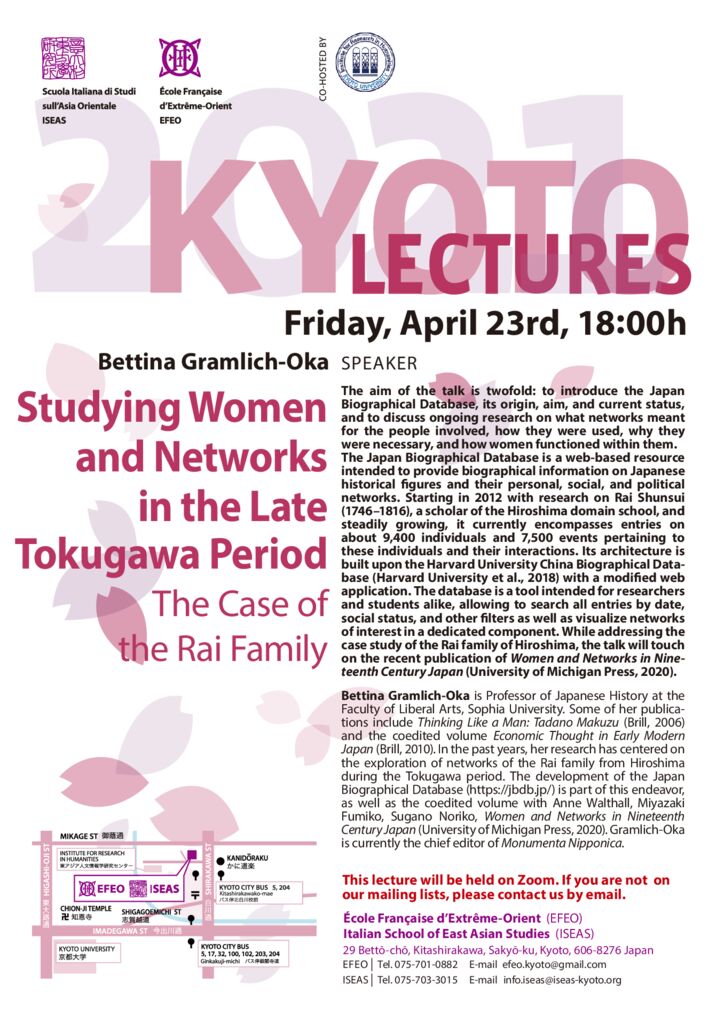The aim of the talk is twofold: to introduce the Japan Biographical Database, its origin, aim, and current status, and to discuss ongoing research on what networks meant for the people involved, how they were used, why they were necessary, and how women functioned within them. The Japan Biographical Database is a web-based resource intended to provide biographical information on Japanese historical figures and their personal, social, and political networks. Starting in 2012 with research on Rai Shunsui (1746–1816), a scholar of the Hiroshima domain school, and steadily growing, it currently encompasses entries on about 9,400 individuals and 7,500 events pertaining to these individuals and their interactions. Its architecture is built upon the Harvard University China Biographical Database (Harvard University et al., 2018) with a modified web application. The database is a tool intended for researchers and students alike, allowing to search all entries by date, social status, and other filters as well as visualize networks of interest in a dedicated component. While addressing the case study of the Rai family of Hiroshima, the talk will touch on the recent publication of Women and Networks in Nineteenth Century Japan (University of Michigan Press, 2020).
Bettina Gramlich-Oka is Professor of Japanese History at the Faculty of Liberal Arts, Sophia University. Some of her publications include Thinking Like a Man: Tadano Makuzu (Brill, 2006) and the coedited volume Economic Thought in Early Modern Japan (Brill, 2010). In the past years, her research has centered on the exploration of networks of the Rai family from Hiroshima during the Tokugawa period. The development of the Japan Biographical Database (https://jbdb.jp/) is part of this endeavor, as well as the coedited volume with Anne Walthall, Miyazaki Fumiko, Sugano Noriko, Women and Networks in Nineteenth Century Japan (University of Michigan Press, 2020). Gramlich-Oka is currently the chief editor of Monumenta Nipponica.
